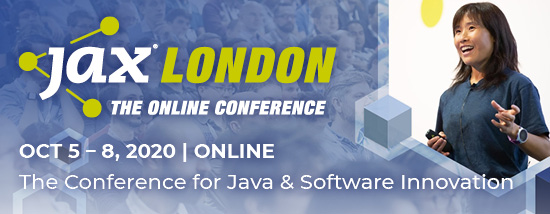A research study by The National Center for Women & Information Technology showed that “gender diversity has specific benefits in technology settings,” which could explain why tech companies have started to invest in initiatives that aim to boost the number of female applicants, recruit them in a more effective way, retain them for longer, and give them the opportunity to advance. But is it enough?
Three years ago, we launched a diversity series aimed at bringing the most inspirational and powerful women in the tech scene to your attention. Today, we’d like you to meet Isabell Sippli, Senior Technical Lead at IBM.
Today’s Woman in Tech: Isabell Sippli, Senior Technical Lead at IBM.
During her computer science studies, Isabell Sippli already devoted herself to topics such as  machine learning and artificial intelligence. After graduation she started her career as a software engineer at IBM, became team lead of an international team, lead developer, and speaker at various international conferences. Currently she is working as Senior Technical Lead of a larger development team at IBM.
machine learning and artificial intelligence. After graduation she started her career as a software engineer at IBM, became team lead of an international team, lead developer, and speaker at various international conferences. Currently she is working as Senior Technical Lead of a larger development team at IBM.
When did you become interested in technology?
I discovered my interest in tech during my upper school studies – in a computer science company. Also, my parents were always very progressive about new technologies – I was one of the first in my class to have access to a computer at home and also had Internet access relatively early on. So, little by little I discovered the joy of trying things out.
I was attracted to studying computer science because I wanted to understand how my computer works in the background and because I wanted to learn how to program “properly”. But I was very unsure whether this would suit me. I dealt with this uncertainty openly – and explained to my parents that I was very keen to start studying, but that it was possible that I might choose a different path. But after the first internship it was clear to me that this is exactly my thing. 
How did you end up in your career path?
After several internships and working student activities I started working for IBM in 2007 in the Germany R&D laboratory as a software tester. After half a year I changed to the development department (at that time it was strictly separated), and spent 5 years developing mainly in Java/JEE. There I also had my first small management tasks, for example as implementation lead for features. When I had the feeling that I couldn’t grow more, I switched to a customer-oriented position. There I was responsible as lead architect for the implementation of various private clouds for European customers and worked in both pre- and post-sales. The time was very travel-intensive and instructive.
After almost 2 years I got an offer to work in the staff team of a technical executive where I spent a year evaluating different technologies for their product maturity and suitability for the portfolio. Afterwards I changed into my current field of activity, as an architect for a new SaaS product. Gradually I took on more and more responsibility (more components, larger teams).
Since 2017, I have been a Senior Technical Staff Member and, as lead architect, I am responsible for a large development team.
I do believe that the socialization of boys and girls drifts in a certain direction at a very early age, and that there are too few female role models.
Do you have any role models?
Yes, some. I have 2 (male) mentors within IBM who have encouraged me to take certain steps and have always asked me the right questions to find my own way. There were also important door openers, and without them I would not be where I am today.
I was lucky to always have very supportive managers and mentors who encouraged and challenged me.
I have some role models, both female and male. These include female colleagues who have managed to combine family and leadership wonderfully, and one female colleague, a technical executive, who particularly impresses me with her foresight, friendliness, technical competence, and down-to-earth attitude.
A day in Isabell’s life
I am a Senior Technical Staff Member in IT Operations Management. I have the technical lead of a software product (more here), which means I give technical guidance to my development teams and discuss solutions with my peers and teams, create prototypes to analyze feasibility, talk a lot with customers to understand their requirements and analyze the market. I spend a lot of time in web conferences, but I also have quiet hours to get familiar with technical problems, to learn more, and just to play with technology.
At the beginning of my career, I exclusively programmed, but that lessened with my changed responsibilities. Nevertheless, I’ll stay on. My last project was a small command line tool in Go to make it easier to use a REST API.
Why aren’t there more women in the tech industry?
I keep thinking about this, but I don’t have an all-encompassing answer. But I do believe that the socialization of boys and girls drifts in a certain direction at a very early age, and that there are too few female role models. I think a lot of great things happen, like gender-neutral toys, Girls Day, this interview series, etc.
However, depending on their background, women need more courage to get involved in the tech industry, to take unusual paths, and to stand by themselves and their strategies.
Which clichés/stereotypes have you already encountered with regard to “Women in Tech”? What problems does this cause?
I would like to emphasize that I am in the lucky position to have been confronted with relatively few of them – but I am rather the exception.
What I have encountered:
- “Women and computers, what are you doing here?”
- “You don’t look like a computer scientist.”
- “You’re only promoted because you’re a woman.”
- “Having children and an engineering career are not compatible.”
This is all nonsense rationally, but emotionally, sometimes it doesn’t feel that way. In my view, the problems that arise from this are above all deterrence and uncertainty, which thwarts young female talent.
On the subject of compatibility – in our industry, fortunately declining in my perception, there is always a “workaholic hero culture”. There is a myth of the constantly accessible techie who can solve any problem, no matter what time of day. In my opinion, some women are put off by this because they don’t see any compatibility with family in advance.
There may be such requirements, but I know many more jobs that are perfectly compatible with a balanced private life.
I have a small son, and currently, I work 85% of the time, while my husband works full-time. In non-Corona times, a daycare centre works well. It’s a bit more difficult and exhausting right now, but certainly much easier than in other sectors. Nevertheless, I will be happy when the daycare centres open again. 
Would our world be different if more women worked in STEM?
It’s a great, constantly growing and changing industry – I couldn’t imagine a more exciting place to work. There are so many opportunities to learn and develop. There are many studies that show that male-female mixed teams perform better, so more women are a win-win situation for everyone.
I don’t know if the world would look different, but our industry would be more colourful, and the results would certainly be more diverse. Also, I can’t tell how teams feel without women, because when I participate it’s not a pure men’s team anymore. However, I have received feedback from colleagues that my presence brings more peace and quiet and that the overall atmosphere is more friendly. I see advantages for everyone – and especially for the women, who could tap into the great opportunities within our industry. But I don’t believe that only certain areas can benefit from innovations. We should stop seeing certain areas as purely female or male.
The diversity debate will not end until everyone, regardless of gender, skin colour, sexual orientation, origin, has equal opportunities to enter and advance – and it will take time to achieve this across the board.
The diversity debate will not end until everyone, regardless of gender, skin colour, sexual orientation, origin, has equal opportunities to enter and advance – and it will take time to achieve this across the board. IBM is certainly a pioneer in this area and I have never felt disadvantaged, but if you look into the subject a bit, you will quickly find dark spots.
What advice (and tips) would you give to women who want a tech career?
Have guts and be curious! Find role models and mentors, and build up a network of trusted people. Never lose your curiosity and passion for learning. Be flexible, and invest in yourself through continuous education. Don’t let anyone tell you that you can’t do anything – try it out and see for yourself.
No one knows how to program from birth. I programmed for the first time in upper school, and then started my studies relatively cold. What I learned there (from the courses, in the cooperation with fellow students, and in internships) was enough for a great start into professional life. In my opinion, the prerequisite is pleasure in problem-solving and puzzles. A general affinity for computers and an interest in understanding how technology works are very helpful. For example, I rarely spend my free time in front of the screen – I prefer to spend it with my family, friends or doing yoga or horseback riding.
More Women in Tech:
- Women in Tech: “Join meetups and other women tech groups”
- Women in Tech: “Degrees can matter but they aren’t required”
- Women in Tech: “The IT sector requires a lot of energy and will”
- Women in Tech: “I got to be a self-taught, self-managed, problem solver”
- Women in Tech: “Don’t let irrational advice keep you from tech!”
For even more Women in Tech, click here
The post Women in Tech: “The prerequisite is pleasure in problem-solving” appeared first on JAXenter.
Source : JAXenter



















